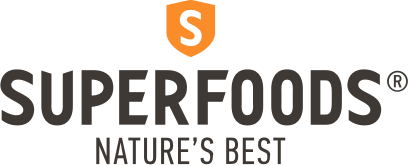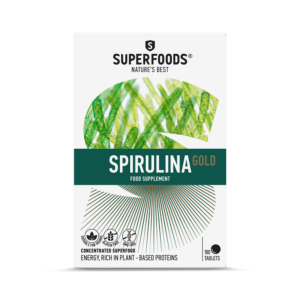A healthy diet was synonymous to a proper lifestyle, according to the ancient Greeks, thus the famous saying “sound mind and a healthy body”. One can easily understand that participation and performance in the classic Athens Marathon is also a matter of nutrition.
The authentic Athens Marathon will take place this year on November 12 and for another year it will be a pole of attraction for people all over the world. Professional athletes, runners and people less familiar with physical activity can participate in this event. The secret, however, lies in the right preparation, which depends on training and nutrition, two factors that are interdependent.
A diet rich in carbohydrates plays an important role in a proper Marathon Diet. Carbohydrates should cover nearly 45-60 % of the total energy intake, fat between 25-35% and protein between 15-20%. However, during training for the Marathon, this proportion varies according to the intensity of the exercise, which in turn is adjusted as the date of the race approaches. Throughout the pre-competition period, carbohydrate intake should reach 70% of the total intake as it is the most important source of energy for the human body. This process is called “Charging Carbohydrates” and is recommended in endurance races. By consuming more carbohydrates, glycogen storage (energy source) is increased in the muscles and the liver, and thanks to this glycogen one can significantly improve sports performance.
The quality of carbohydrates is equally important. Due to the fact that carbohydrate consumption affects blood glucose, this 70% should be mainly derived from carbohydrates with a low glycemic index and load – specific to each food – to keep blood sugar levels stable. When training is intense, white, simple carbohydrates (rice, spaghetti, groats) must be preferred as they release energy faster. The diet should be the same 2-3 days before the race. Whole-fiber products rich in fiber should be moderately consumed while during the last 24 hours they must be limited in order to minimize any possibility of gastrointestinal disturbances.
At the same time, in order to achieve the best possible result, athletes must follow a specific hydration program based on the intensity of the exercise. Increased fluid loss due to perspiration can cause an imbalance in electrolytes (potassium, sodium), which can cause symptoms of fatigue and even severe complications in cardiovascular function. Moderate caffeine consumption (<400mg / day) is not forbidden, as it leads to glycogen savings (energy) and has been associated with better performance in endurance sports. On the other hand, alcohol should be avoided especially before a race because it causes dehydration.
A healthy diet was synonymous to a proper lifestyle, according to the ancient Greeks, thus the famous saying “sound mind and a healthy body”. One can easily understand that participation and performance in the classic Athens Marathon is also a matter of nutrition.
The authentic Athens Marathon will take place this year on November 12 and for another year it will be a pole of attraction for people all over the world. Professional athletes, runners and people less familiar with physical activity can participate in this event. The secret, however, lies in the right preparation, which depends on training and nutrition, two factors that are interdependent.
A diet rich in carbohydrates plays an important role in a proper Marathon Diet. Carbohydrates should cover nearly 45-60 % of the total energy intake, fat between 25-35% and protein between 15-20%. However, during training for the Marathon, this proportion varies according to the intensity of the exercise, which in turn is adjusted as the date of the race approaches. Throughout the pre-competition period, carbohydrate intake should reach 70% of the total intake as it is the most important source of energy for the human body. This process is called “Charging Carbohydrates” and is recommended in endurance races. By consuming more carbohydrates, glycogen storage (energy source) is increased in the muscles and the liver, and thanks to this glycogen one can significantly improve sports performance.
The quality of carbohydrates is equally important. Due to the fact that carbohydrate consumption affects blood glucose, this 70% should be mainly derived from carbohydrates with a low glycemic index and load – specific to each food – to keep blood sugar levels stable. When training is intense, white, simple carbohydrates (rice, spaghetti, groats) must be preferred as they release energy faster. The diet should be the same 2-3 days before the race. Whole-fiber products rich in fiber should be moderately consumed while during the last 24 hours they must be limited in order to minimize any possibility of gastrointestinal disturbances.
At the same time, in order to achieve the best possible result, athletes must follow a specific hydration program based on the intensity of the exercise. Increased fluid loss due to perspiration can cause an imbalance in electrolytes (potassium, sodium), which can cause symptoms of fatigue and even severe complications in cardiovascular function. Moderate caffeine consumption (<400mg / day) is not forbidden, as it leads to glycogen savings (energy) and has been associated with better performance in endurance sports. On the other hand, alcohol should be avoided especially before a race because it causes dehydration.
During preparation for a Marathon race, the body’s needs are increased and athletes will need to strengthen their stamina in order to perform better. SUPERFOODS, through the SPIRULINA GOLD nutritional supplement, offer athletes the opportunity to enhance their stamina, energy and stimulation. Spirulina is a tiny seaweed rich in protein, making it a superconcentrated superfood suitable for people with intense physical activity, vegetarians / vegans and more generally those who seek to stimulate the body. SPIRULINA GOLD, combined with a balanced and specialized diet, is an excellent source of plant protein.
During preparation for a Marathon race, the body’s needs are increased and athletes will need to strengthen their stamina in order to perform better. SUPERFOODS, through the SPIRULINA GOLD nutritional supplement, offer athletes the opportunity to enhance their stamina, energy and stimulation. Spirulina is a tiny seaweed rich in protein, making it a superconcentrated superfood suitable for people with intense physical activity, vegetarians / vegans and more generally those who seek to stimulate the body. SPIRULINA GOLD, combined with a balanced and specialized diet, is an excellent source of plant protein.



